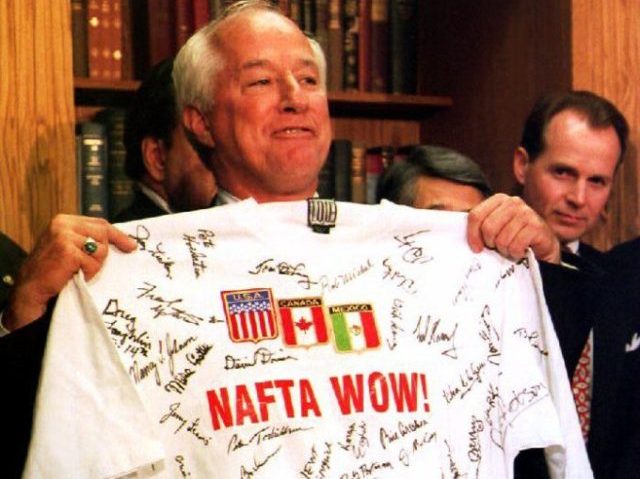Can NAFTA be fixed?
When Donald Trump decided against abandoning the trade agreement, he committed the U.S. to renegotiating it instead. Those negotiations began last week, with the U.S. taking a tough stance from the start. This week Trump said that the agreement might need to be abandoned after all because he wasn’t sure the renegotiation could rescue it.
Is this a negotiating tactic? Or a sign that the renegotiation process is not going well? Perhaps it is both. The president may be sending a signal to Canada and Mexico that they should be careful about resisting U.S. demands for a better trade agreement because the U.S. retains the ability to walk away.
Congresswoman Marcy Kaptur, the longest-serving woman in Congress, has very specific ideas for how to fix NAFTA and other trade agreements. She would have the U.S. government revisit any agreement that results in three years or more of trade deficits over $10 billion with any country.
From her Guardian op-ed:
Some economists and some of my colleagues suggest deficits are a healthy aspect of trade agreements, citing mighty American buying power as a singular point of success. That is a distorted view. Mammoth deficits are not beneficial when the job loss behind the imbalance creates seismic economic and cultural pressures. The trade deficit can even limit GDP growth as huge trade deficits can create slow growth economies.
Just in June, the US experienced a $43.6bn trade deficit. These deficits mean more money left the wallets of hardworking Americans to feed the greed of rapacious, low-wage seeking transnational interests. Just look at Nafta’s job numbers: between 1997 and 2010, the US bled 682,900 jobs to Mexico.
To help remedy this, Lighthizer should adopt the concept of my bill, the Balancing Trade Act (HR 2766), as a fundamental stance of US trade policy. It requires the administration adjust policy with any nation accumulating a trade deficit of $10bn or more for three consecutive years. Alternatively, Congress should pass and the president should sign this bill as part of our commitment to lowering trade deficits.
There is no doubt that the US economy possesses unparalleled buying power, but trade is about workers, not just goods.

COMMENTS
Please let us know if you're having issues with commenting.